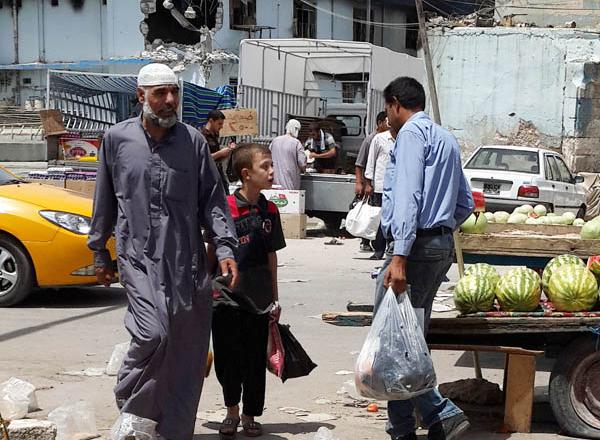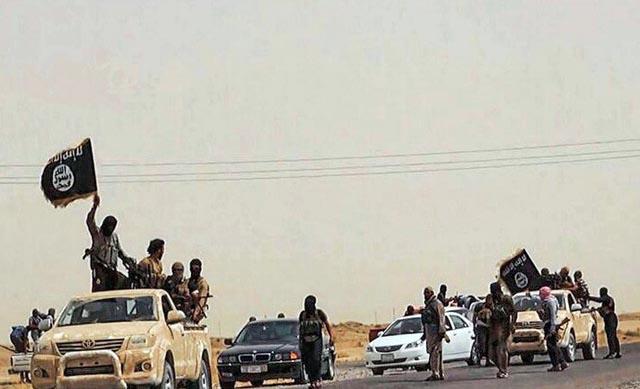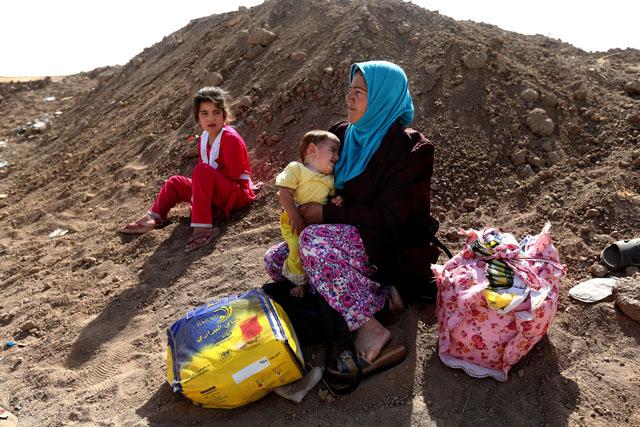You are here
Iraq names moderate Sunni parliament speaker in move to break political deadlock
By Reuters - Jul 15,2014 - Last updated at Jul 15,2014

BAGHDAD — Iraqi politicians named a moderate Sunni Islamist as speaker of parliament on Tuesday, a long-delayed first step towards a power-sharing government urgently needed to save the state from disintegration in the face of a Sunni uprising.
A Shiite leader suggested the naming of Salim Al Jabouri as speaker was part of a broader political deal, but gave no clue as to whether that meant Shiite Prime Minister Nouri Al Maliki had managed to secure backing for a third term.
The vote came as Iraq’s army and allied Shiite militia launched an assault to retake former dictator Saddam Hussein’s home city Tikrit from Al Qaeda offshoot known as the Islamic State and allied militants, who seized it in mid-June during a lightning assault through the north.
The stunning advance by the militants over the past month has put Iraq’s very survival in jeopardy even as its politicians have been deadlocked over forming a new government since an election in April.
Maliki, whose State of Law coalition won the most seats but would need allies to form a government, has ruled since the election as a caretaker, defying demands from Sunnis and Kurds that he step aside for a less-polarising figure.
Washington has made clear that setting up a more inclusive government in Baghdad is a requirement for its military support against the insurgency.
Under Iraq’s governing system put in place after the US invasion in 2003, the prime minister has always been a member of the Shiite majority, the speaker a Sunni and the largely ceremonial president a Kurd, with the three posts hammered out in prolonged negotiations following every election.
Picking the Sunni speaker is parliament’s first task, but Sunni leaders had previously refused to nominate one until a deal was reached on a prime minister.
Ibrahim Jaafari, Maliki’s predecessor and now head of his Shiite National Alliance, hinted that a wider deal had been reached, saying the Shiite alliance was voting for Jabouri and expected support from Sunni politicians in return.
“It is the nature of any deal that any commitment should be mutual. It doesn’t make sense that we support them and they don’t support us,” Jaafari said. However, he did not specify whether the National Alliance would now nominate Maliki for prime minister or choose another candidate.
During two breaks in the session, Sunni and Kurdish politicians were not immediately available to comment.
Sharp sword
Iraq’s army and allied Shiite militia have managed to halt the advance of Sunni fighters north of Baghdad but have struggled to recapture territory, launching several attempts so far to retake Tikrit.
The defence ministry said troops launched their latest assault on the Tigris River city, operation “Sharp Sword”, at dawn on Tuesday, attacking from the south and battling insurgents in the southern districts.
An officer taking part in Tuesday’s assault said uniformed volunteer fighters and militia forces, including the Shiite Asa’ib Ahl Al Haq, were fighting alongside the army while following orders from their own militia commanders.
The assault was launched from the village of Saddam’s birth, Awja, some 8km south of the city which the army retook on the night of July 3.
Tuesday’s initial fighting focused around the Shishin district of south Tikrit, the officer and another soldier said, adding that the army was also heading towards Saddam’s former presidential palace compounds, where Islamic State fighters had held captives and run their Islamic court trials. Soldiers were also fighting to take Tikrit hospital on strategic high ground.
Across the Tigris River to the east, the army landed paratroopers in Albu Ajeel, a village where Iraqiya state television said some insurgents had fled. One army officer in the fighting said they were surprised the resistance they experienced was less fierce than expected.
The Sunni insurgency is led by the Islamic State, which shortened its name from the Islamic State of Iraq and the Levant after last month’s advance into Iraq and declared its leader “caliph” — ruler of all Muslims.
It now controls a swathe of territory from Aleppo in Syria close to the Mediterranean to the outskirts of Baghdad.
In Iraq last month it initially won the support of other armed Sunni groups, including tribal fighters and Saddam loyalists, but there have been signs that those groups are turning against Al Qaeda offshoot in recent days.
Residents of a town north of Baghdad found 12 corpses with execution-style bullet wounds on Monday following fighting overnight between Islamic State fighters and the Naqshbandi Army, a group led by Saddam loyalists.
Washington hopes a more inclusive government in Baghdad could save Iraq by persuading moderate Sunnis to turn against the insurgency, as many did during the “surge” offensive in 2006-2007 when US troops paid them to switch sides.
Two suicide bombers detonated explosive-packed cars at a restaurant on the road between Samarra and Tikrit, a witness said. A doctor at Samarra Hospital put the initial death toll from the blast at seven.
In the town of Madain, southeast of Baghdad, two bombs at an army recruitment centre killed nine people, police and medical sources said. In Yousefiya, also south of Baghdad, four soldiers were killed by a roadside bomb on their patrol.
Related Articles
Iraq’s army sent tanks and armoured vehicles to try to dislodge insurgents from the northern city of Tikrit on Sunday, the second day of a pushback against a Sunni militant takeover of large stretches of Iraq.
Iraqi government forces backed by helicopter gunships began an offensive on Saturday to retake the northern city of Tikrit from Sunni Islamist militants while party leaders pursued talks that could end Prime Minister Nouri Al Maliki’s divisive rule.
Iraqi forces launched an airborne assault on rebel-held Tikrit on Thursday with commandos flown into a stadium in helicopters, at least one of which crashed after taking fire from insurgents who have seized northern cities.














